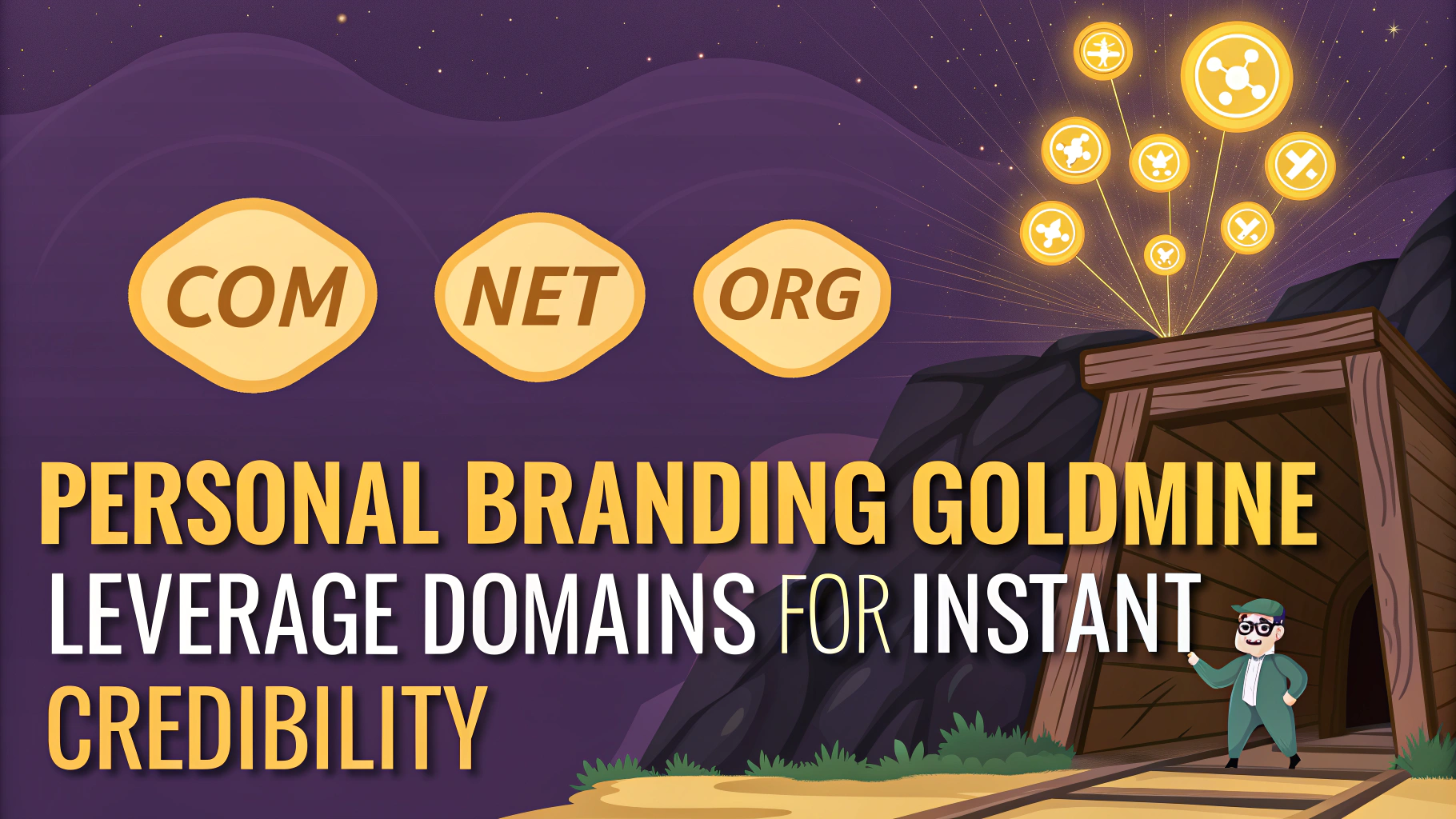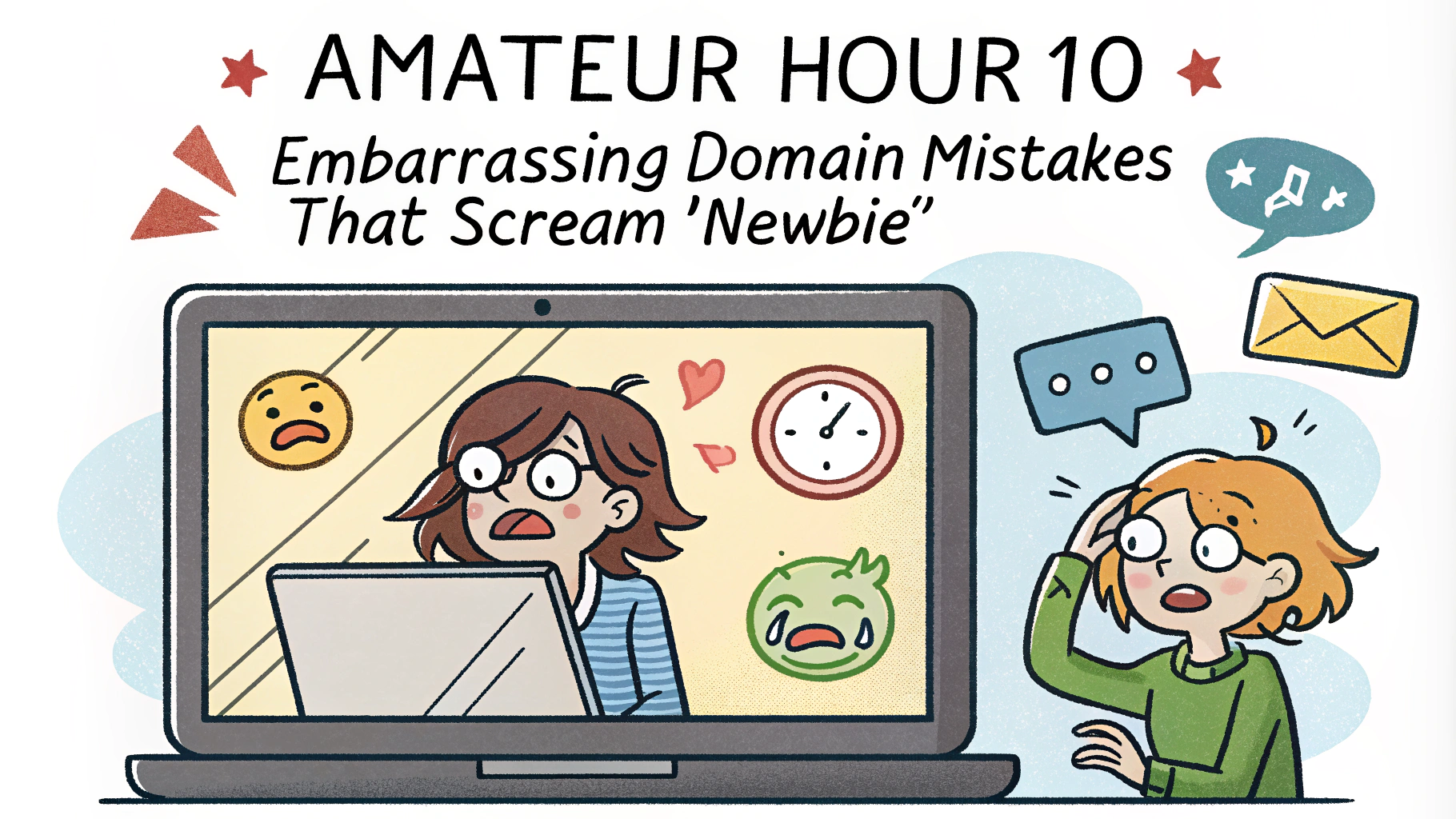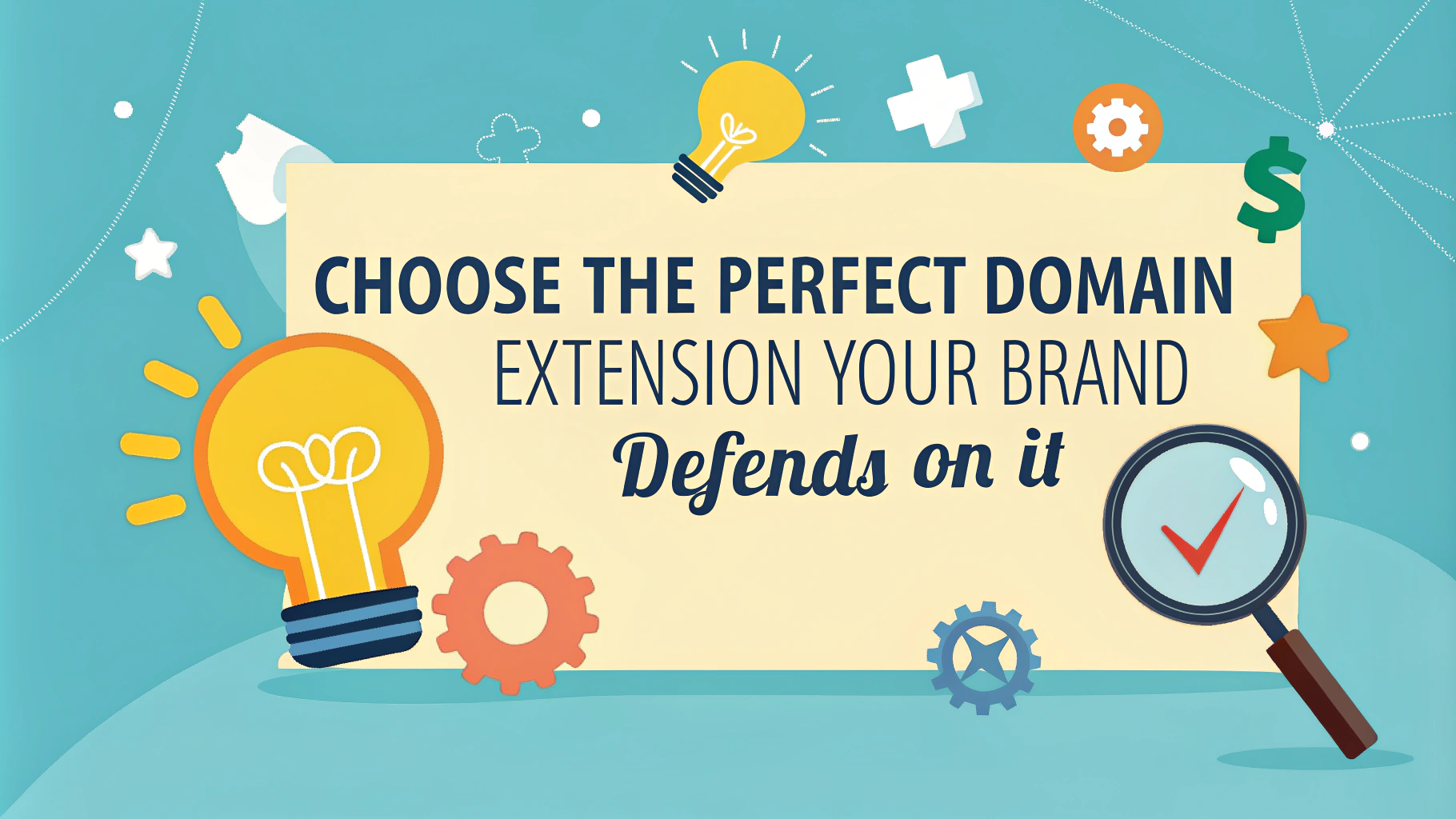Your domain extension is the first thing people see when they visit your website. It’s a key part of your online identity and can impact how users perceive your brand.
This article will help you pick the right domain extension for your website, considering factors like brand identity, industry norms, and target audience.
Understanding Domain Extensions
Domain extensions, also known as Top-Level Domains (TLDs), are the suffix at the end of a web address. They come in various types:
- Generic TLDs (gTLDs): .com, .net, .org
- Country Code TLDs (ccTLDs): .uk, .de, .jp
- New gTLDs: .blog, .shop, .app
Each type serves different purposes and can convey specific meanings about your website or brand.
Popular Domain Extensions and Their Uses
Different extensions are suitable for various types of websites:
| Extension | Best For | Example |
|---|---|---|
| .com | Commercial websites, general use | amazon.com |
| .org | Non-profit organizations | wikipedia.org |
| .edu | Educational institutions | harvard.edu |
| .io | Tech startups, software companies | github.io |
Choose an extension that aligns with your website’s purpose and target audience.
Factors to Consider When Choosing a Domain Extension
Several factors should influence your choice of domain extension:
- Brand identity: Does the extension match your brand’s personality?
- Industry norms: What extensions do similar businesses in your field use?
- Target audience: Will your audience recognize and trust the extension?
- SEO implications: How might the extension affect your search engine rankings?
- Availability: Is your desired domain name available with this extension?
- Price: How much does the extension cost to register and renew?
Consider these factors carefully to make an informed decision about your domain extension.
How to Choose the Perfect Domain Extension
Picking the right domain extension can make or break your online presence. This quick guide will help you navigate the world of TLDs and find the perfect fit for your website.
We’ll explore popular extensions, their ideal uses, and key factors to consider when making your choice. By the end, you’ll have the knowledge to select a domain extension that aligns with your brand and goals.
Matching Extensions to Your Website Type
Different extensions work better for certain types of websites. Here’s a quick breakdown:
- E-commerce: .shop, .store, .market (e.g., etsy.com, shop.com)
- Blogs: .blog, .news, .media (e.g., medium.com, wordpress.com)
- Tech companies: .io, .tech, .ai (e.g., slack.com, auth0.com)
- Local businesses: .local, ccTLDs (e.g., yelp.com, yellowpages.co.uk)
Choose an extension that reflects your website’s purpose and audience.
Geographic Considerations
Your location and target market play a role in choosing a domain extension:
- Global audience: Stick with .com or new gTLDs
- Country-specific: Use ccTLDs (e.g., .uk for the UK, .de for Germany)
- Regional focus: Consider regional TLDs (e.g., .eu for Europe)
A local extension can boost credibility with regional audiences but may limit international appeal.
Brand Protection and Multiple Extensions
Secure your brand across various domain extensions to protect your online identity:
- Register common variations (e.g., yourbrand.com, yourbrand.net, yourbrand.org)
- Secure industry-specific extensions (e.g., yourbrand.shop for e-commerce)
- Consider registering common misspellings
Redirect these domains to your main website to capture more traffic and prevent brand confusion.
SEO and Domain Extensions
While Google treats all gTLDs equally, some factors can impact SEO:
- User behavior: Familiar extensions like .com may get more clicks
- Local SEO: ccTLDs can boost rankings for region-specific searches
- Keyword-rich extensions: New gTLDs like .blog or .shop can signal relevance
Focus on creating quality content and building authority, regardless of your chosen extension.
Future-Proofing Your Domain Choice
Select an extension that will grow with your brand:
- Avoid trendy extensions that may lose popularity
- Consider how your chosen extension might limit future expansion
- Balance uniqueness with recognizability
Example: A local business might start with a ccTLD (.co.uk) but switch to .com for international growth.
When your first choice isn’t available, consider these options:
- Use domain suggestion tools to find alternatives
- Explore new gTLDs for unique combinations
- Consider purchasing a premium domain if it fits your budget
Compare prices across registrars, but also factor in renewal costs and add-on services.
Making the Final Decision
To choose the best domain extension for your website:
- List your top 3-5 extension options
- Check availability and pricing for each
- Consider how each aligns with your brand and goals
- Get feedback from potential users or customers
- Make your choice and register your domain
Remember, your domain is a long-term investment in your online identity. Choose wisely!











